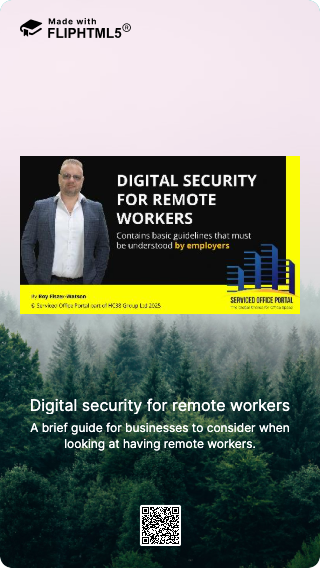Digital Security
In today’s digital age, remote work has become a norm for many businesses, both large and small. While this shift offers numerous benefits, it also brings significant security challenges. Ensuring digital security for remote workers is crucial to protect sensitive information and maintain business integrity. Here’s a comprehensive guide to help you navigate these challenges.
Understanding the Risks
Remote work environments can be vulnerable to various security threats, including:
- Phishing Attacks: Cybercriminals often target remote workers with deceptive emails to steal sensitive information.
- Unsecured Networks: Using public Wi-Fi networks can expose data to interception.
- Device Theft: Laptops and mobile devices used for work can be lost or stolen, leading to potential data breaches.
- Weak Passwords: Inadequate password practices can make it easier for unauthorized individuals to access company systems.
Essential Security Measures
To mitigate these risks, businesses should implement the following security measures:
- Use of VPNs: Virtual Private Networks (VPNs) encrypt internet connections, making it safer for remote workers to access company resources.
- Multi-Factor Authentication (MFA): MFA adds an extra layer of security by requiring multiple forms of verification before granting access.
- Regular Software Updates: Keeping software and systems up to date ensures protection against known vulnerabilities.
- Secure Communication Tools: Utilize encrypted communication platforms for sharing sensitive information.
- Employee Training: Regular training sessions on recognizing phishing attempts and practicing good cybersecurity hygiene are essential.
Best Practices for Remote Workers

Remote workers should adopt the following best practices to enhance their digital security:
- Strong Passwords: Use complex passwords and change them regularly.
- Secure Wi-Fi: Avoid using public Wi-Fi for work-related tasks. If necessary, use a VPN.
- Data Backup: Regularly back up important data to secure cloud storage or external drives.
- Device Security: Enable device encryption and use security software to protect against malware.
- Awareness and Vigilance: Stay informed about the latest security threats and be cautious of suspicious emails and links.
Best Practice
Digital security for remote workers is a shared responsibility between employers and employees. By understanding the risks and implementing robust security measures, businesses can protect their data and maintain a secure remote work environment. Prioritising digital security not only safeguards sensitive information but also fosters trust and productivity among remote teams.
For a more detailed guide click the link in the image. Always consider consulting cybersecurity experts or accessing comprehensive digital security manuals tailored to your specific needs.
Feel free to share this article with your team to raise awareness and enhance your organisation’s digital security practices. If you have any questions or need further assistance, don’t hesitate to reach out!


